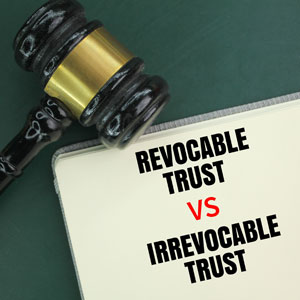
In this article, you will learn: The long term effects of burn injuries on victims. How scarring factors into the personal injury burn claim. How pain and suffering and future treatment costs are factored into the claim. In Your Experience, What Are The Long Term Effects Of Burn Injuries? Burn injuries can take a long time to heal and even carry various long term effects that can be difficult to recover fully from. Burns can cause permanent disfigurement and scarring. If the burns are extensive, they can cause the loss of limbs, mobility, and, if there’s hypertrophic scarring, the ability to move. In addition, burn victims sometimes experience chronic pain or even a loss of sensation. Some burns can lead to an increased risk of developing cancer, cardiovascular disease, diabetes and other conditions. Another long lasting effect could be itching. Studies have shown up to 40% or more of burn victims experience long term itching, even after they've completely healed. They can also have emotional issues such as depression, PTSD,…Read More

This article covers the following: How to document burn injuries you sustain from the accident. The medical attention you need will support your claim. How an attorney can help you navigate interactions with insurance companies. How Do I Document The Cause Of My Burn Injury And The Level Of Pain? Burns are a common injury among road accident victims. They can be caused by flames that erupt after the accident, friction between yourself and the road or other parts of the car and even chemicals if the accident involves a commercial truck carrying corrosive chemicals. Documenting the burns is crucial because it can reveal vital information later on, such as the nature of the burns and their cause. To document the burns, you should take frequent photos of the burn injury, how it heals, and the changes in the wound. If possible, you should keep a journal where you detail how you're feeling, what pain you're experiencing, and your recovery. The journal will prevent you from having to remember the…Read More

In this guide, you will learn the following: How to collect evidence and document the accident scene. Why you should seek medical attention immediately following an accident. What comparative fault is, and how it can affect your claim. How Should I Document The Accident Scene To Help My Case? Documenting the accident scene is vital in helping preserve crucial evidence before it is interfered with. If you haven’t done this before, it can be confusing, especially with so much happening at the same time and your head still reeling from the accident. You should start by taking photographs of the actual accident. When taking the pictures, consider the following: Include the exterior and, if possible. The interior while the cars are still at their resting point. Get a little bit further away to get the position of the two cars relative to each other Anything around that, you could tell where the cars are on the roadway Any skid marks on the road Damage or debris that came off the…Read More

Your Initial Consultation During the initial consultation you have with an estate planning attorney, they will likely ask for detailed information about your heirs and assets. This includes: A list of all your heirs and beneficiaries. A list of all your assets, including real estate, investments, bank accounts, and personal property. Your wishes regarding the distribution of your assets and any specific bequests. Information on who you would like to appoint as executor, guardian for minor children, or trustee. Bringing the following documents will go far to ensure a productive initial consultation: A list of beneficiaries and desired executors. Financial records detailing all assets. Any relevant legal documents, such as prenuptial agreements, divorce settlements, or existing wills or trusts. Insurance policies, deeds to real estate, and any business ownership documents. What Sets Legal Advantage Group Apart Our firm stands out because we prioritize direct interaction between clients and attorneys, not paralegals or assistants. We focus on creating personalized estate plans tailored to each client's unique circumstances and needs. Unlike firms…Read More

In this guide, you will learn: When to notify your insurance company after an accident with a commercial truck. How long you have to file a personal injury claim after an accident with a commercial truck. Common challenges faced when filing for personal injury claims, and how an attorney can help. How Soon Should I Notify My Insurance Company After An Accident With A Commercial Truck? The decisions you make in the next few minutes following an accident determine the outcome of many factors surrounding the accident. You’re likely to feel the pressure and even feel like everything is a mistake. You might feel uncertain and second-guess everything that has happened. However, notifying your insurance company is not wrong. You should report the accident to your own insurance. Ideally, you should do this within 24 hours. You can do this by calling your agent and telling them you were in an accident. But before talking to an adjuster or anyone else, it’s advisable to contact a personal injury attorney. What’s…Read More

The Importance Of Incapacity Planning Incapacity planning involves preparing for situations where you may become unable to manage your own affairs due to illness, injury, or other reasons. It's vital because it ensures that your wishes are respected and your affairs are properly managed if you can't make decisions for yourself. Key elements include powers of attorney and revocable living trusts. In Oklahoma, long-term care options include: Home Health Care Assisted Living Nursing Homes Adult Daycare Long-Term Care And Medicaid Medicaid can cover long-term care costs if you meet certain eligibility requirements, especially if you lack the ability to pay for care yourself or don't have long-term care insurance. In Oklahoma, Medicaid considers the following exempt assets: Your home up to the equity limit Personal belongings One vehicle Term insurance and whole life with a face value does not exceed $1,500.00 Countable assets of $2,000.00 or less Certain types of trusts If you qualify, Medicaid can cover 100% of the costs for qualified nursing home care. This financial assistance is…Read More

Exploring Living Trusts In Oklahoma A living trust is a document that allows you to manage your assets during your lifetime and distribute them after your death without going through probate. In Oklahoma, a living trust becomes effective as soon as it is signed. Typically, the person creating the trust acts as the initial trustee, managing the assets just as they did before the trust was established. If they become incapacitated, a successor trustee can take over the management of the trust. With a living trust, you can treat your property just as you would before the trust existed. If assets are titled in the name of the trust and you are the trustee, you can still sell, give away, or otherwise manage these assets. The key difference is that when you become incapacitated or pass away, the trust remains in effect, and there is no need for probate. A judge does not need to sign an order to manage or distribute the assets. Almost any asset can be placed…Read More

Oklahoma Revocable Trusts A revocable trust, as the name implies, is a trust instrument that allows you to make changes or revoke certain provisions. This flexibility is beneficial when your circumstances or wishes change. In Oklahoma, like elsewhere, a revocable trust can be adjusted to reflect new desires or needs, providing a dynamic tool for managing your estate. Comparing Revocable Trusts And Irrevocable Trusts A revocable trust offers flexibility and control, but it does have some noteworthy limitations. Because you can change it, the assets within the trust remain under your control. This means that the assets are not protected from creditors, and you may not qualify for needs-based Medicaid coverage or other similar resources. On the other hand, an irrevocable trust, once established, cannot be easily changed. This type of trust can protect your assets from creditors and can help you qualify for needs-based Medicaid coverage, depending on how it is structured. The main disadvantage of an irrevocable trust is its rigidity. If you change your mind or if…Read More

Unpacking Wills A will is a legal document that outlines how your estate should be distributed after your death and names an executor to manage the process. It is crucial even if you have a trust because it serves as a safety net for any assets not included in the trust. This ensures that your property and assets are distributed according to your wishes and that the person you trust manages your estate. A solid will includes the following: Property Distribution-Related Documents: Specifications of how you want your assets to be divided among your beneficiaries. Executor Appointments: Declaration of a trusted individual to carry out the terms of your will. Guardianships: Designations for guardians to take care of your children in case you pass away while they are still minors. Common Mistakes To Avoid When Drafting a Will The most significant mistake people make is not having a will at all. Other than this, be careful not to: Lack Specificity: Failing to clearly specify how your estate should be handled…Read More

An Overview Estate planning essentially outlines how your assets—your estate—are managed and distributed after your death or if you become incapacitated. It ensures that your wishes are honored and allows your heirs to receive what you intend for them, without the need for lengthy and costly probate processes. By crafting an estate plan, you can specify the distribution of your assets and potentially avoid disputes or delays. Many wrongly believe that you need a lot of money and high-value assets to justify having an estate plan in place, but nothing could be further from the truth. Estate planning is for everyone, regardless of their financial background. Many also wrongly think estate planning is only necessary when there’s a dispute among your family. This, too, is wrong. In fact, estate planning helps avoid disputes from arising in the first place. A well-rounded estate planning portfolio should include several key documents: Will: Wills (and especially pour-over wills) direct how your assets will be transferred upon your death. Trust: Helps you avoid probate…Read More